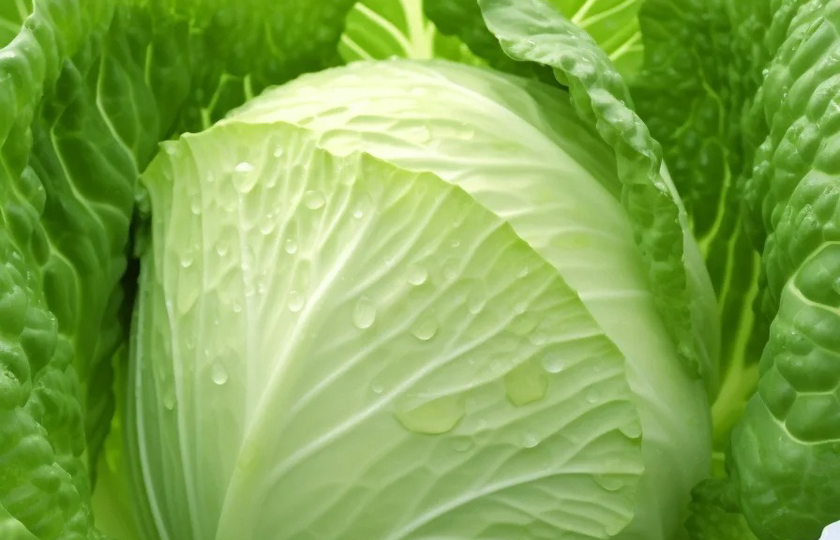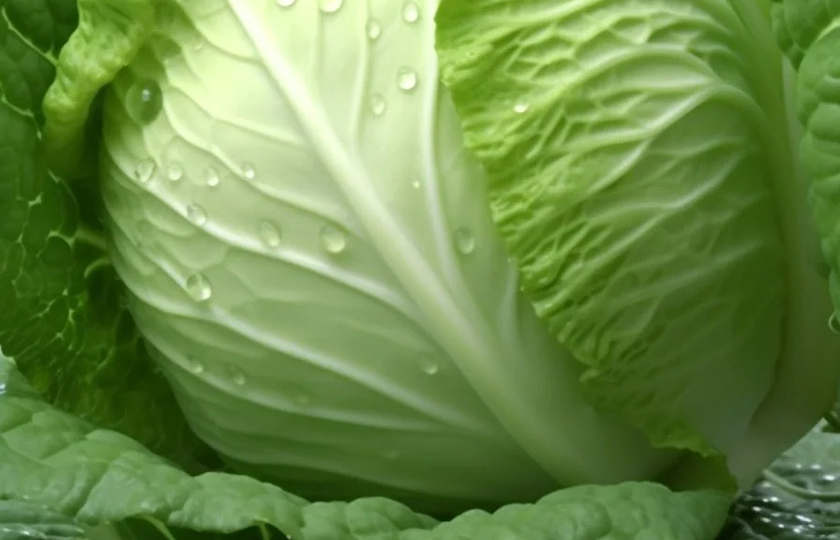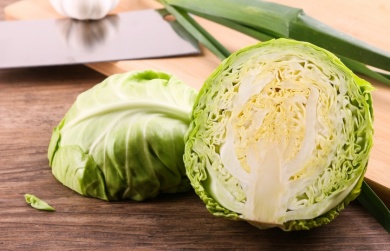Can You Freeze Cooked Cabbage?According to a Short Order Cook

In our culinary explorations, we often encounter the challenge of ingredient preservation. For instance, that freshly cooked cabbage looks delicious and tempting, but it raises the question: Can cooked cabbage be frozen? Let’s uncover this little secret of food storage together.
the answer
Cabbage is rich in vitamin C, vitamin K, and fiber, making it not only delicious but also beneficial for health, aiding digestion and boosting immunity. It can be enjoyed raw, stir-fried, boiled, or pickled.
Cooked cabbage can be frozen for later use. Here’s how: First, let the cooked cabbage cool completely. Then, pack it into a sealable bag or a freezer-safe container, making sure to remove excess air to reduce ice crystal formation and prevent freezer burn, which helps maintain its texture and flavor.
Tips:
Portioning: Divide the cooled cabbage into smaller portions for easier thawing and use later.
Labeling: Write the freezing date on the packaging to keep track of storage time.
How long can you freeze cooked cabbage?
Best Consumption Period:
If cooked cabbage is properly packaged and frozen, it’s best to consume it within 1 to 2 months. During this time, although the freezing process can slightly damage the cell structure, causing the texture to soften, the cabbage will still retain good flavor and minimal nutrient loss.
Edible but Quality Decline Period:
After 2 months, the cabbage can still be eaten, but its texture will noticeably deteriorate, and nutrients will continue to diminish. For example, temperature- and time-sensitive nutrients like vitamin C will continue to decrease. Additionally, long-term freezing may lead to off-flavors, affecting the cabbage's original taste.
Not Recommended for Consumption:
Generally, it is not advisable to eat cabbage that has been frozen for over 6 months. At this point, the cabbage is likely to have suffered freezer burn, resulting in a mushy texture and bland taste, and it may harbor harmful microorganisms, posing health risks upon consumption.
How long will cooked cabbage last in the fridge??
Refrigerated Storage (Not Frozen):
Short-Term Storage (3 to 5 Days):
If cooked cabbage is stored in a sealed container in the refrigerator, it typically lasts for about 3 to 5 days. During this time, the cabbage maintains its flavor and texture well, with minimal nutrient loss.
Medium-Term Storage (5 to 7 Days):
Starting from day 5, the cabbage may begin to show some changes. Its color might deepen slightly due to oxidation from exposure to air and cold temperatures. The texture may also become a bit softer, but it remains safe to eat.
Not Recommended for Consumption (Over 7 Days):
After 7 days, the risk of spoilage increases significantly. Microbial growth may lead to mold or sourness, making it advisable to discard the cabbage to avoid potential health issues.
Factors Affecting Storage Time:
Storage Container:
Using a well-sealed container effectively isolates the cabbage from air, slowing down oxidation and extending its storage time. Simply covering it with plastic wrap may not provide as effective preservation.
Added Ingredients:
If cooked cabbage includes ingredients like vinegar or salt, which have antimicrobial properties, these can help inhibit microbial growth and extend its shelf life.
Does cabbage get soggy after freezing?
Cooked cabbage tends to become relatively wet and soft after freezing, primarily due to the formation of ice crystals during the freezing process, which expels moisture from the cells. Here’s a closer look:
Moisture Changes:
During freezing, moisture in the cabbage forms ice crystals, damaging the cell structure. When thawed, this leads to moisture loss, making the cabbage wet and soft.
Texture Changes:
The formation and melting of ice crystals disrupt the cabbage's fibrous structure, resulting in a loose texture that lacks its original firmness upon thawing.
How to Minimize the Effects of Freezing on Cabbage:
Quick Freezing:
Using quick freezing methods can reduce ice crystal formation, helping to preserve the cabbage's texture and flavor to some extent.
Blanching Before Freezing:
Blanching the cooked cabbage in boiling water for 1 to 2 minutes, then quickly removing and draining it before freezing, can help maintain its color and texture.
How do you reheat frozen cabbage?
Here are some common methods for reheating cooked frozen cabbage:

Microwave:
Place the frozen cabbage in a microwave-safe dish and heat on high for 2-3 minutes. Adjust the time based on your microwave's wattage and the amount of cabbage.
Steaming:
Put the frozen cabbage in a steamer basket and steam over medium heat for 5-10 minutes, or until the cabbage is tender.
Sautéing:
Heat a small amount of oil in a pan, add the frozen cabbage, and sauté over medium heat for 3-5 minutes, until thoroughly heated.
Tips:
Avoid Overheating: Cabbage can become overly soft and mushy when reheated, which affects its texture.
Check Quality: Before eating, inspect the cabbage for any signs of spoilage, such as off odors or discoloration.
Can You Freeze Cooked Cabbage with Bacon?
Yes, you can freeze a combination of cooked cabbage and bacon. Here are some tips to help maintain the texture and flavor:
Cool Completely:
Before freezing, make sure the cooked cabbage and bacon are completely cooled to prevent excess moisture during freezing.
Portioning:
Divide the cabbage and bacon into smaller portions. Use freezer bags or airtight containers, ensuring to squeeze out as much air as possible to prevent freezer burn.
Labeling:
Mark the freezing date on the packaging to keep track of storage time.
Freezing Duration:
Typically, cooked cabbage and bacon can be stored in the freezer for about 2-3 months. While they can last longer, the quality may decline.
Thawing and Reheating:
To thaw, you can either place it in the refrigerator to slowly defrost or use the microwave for a quick thaw. Reheat until thoroughly hot before serving.
Can You Freeze Raw Cabbage for Coleslaw?
Yes, you can freeze raw cabbage for later use in coleslaw. However, freezing may enhance the fibrous texture of the cabbage, which could affect the overall mouthfeel. Here’s how to freeze raw cabbage:
Preparation:
Cut the cabbage and place it in a freezer-safe container or a sealed bag, ensuring there is no excess moisture on the surface.
Freezing:
Put the packaged cabbage in the freezer. Frozen cabbage typically lasts for 1-2 months, but for best quality, it’s recommended to use it within one month.
Thawing and Serving Suggestions:
Natural Thawing: Before cooking, take the frozen cabbage out and let it thaw at room temperature.
Microwave Thawing: Alternatively, you can use the microwave for a quick thaw, which is fast and convenient.
Why Does Frozen Cabbage Turn Brown?
Frozen cabbage can turn brown for several reasons:
Enzyme Activity: During freezing, enzymes in the cabbage may remain active, leading to oxidation and browning. This reaction is more common in raw vegetables. Blanching before freezing can help deactivate these enzymes, reducing discoloration.
Oxidation: When cabbage is exposed to air, oxygen reacts with its internal compounds, causing browning. If the packaging isn’t airtight, the exposure to air can exacerbate this oxidation process.
Freezing Duration: If cabbage is frozen for an extended period, its texture and color may deteriorate, resulting in browning.
Tips to Reduce Browning:
Blanching: Blanching the cabbage before freezing helps inactivating enzymes and minimizing oxidation.
Airtight Packaging: Use well-sealed freezer bags or containers to limit air exposure and decrease the risk of oxidation.























